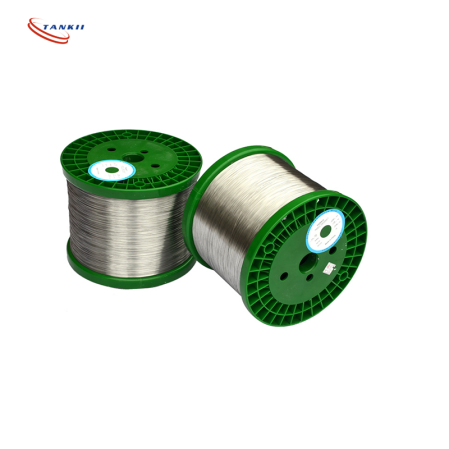
The question of whether Monel is stronger than stainless steel frequently arises among engineers, manufacturers, and material enthusiasts. To answer this, it's essential to dissect various aspects of "strength," including tensile strength, corrosion resistance, and high-temperature stability, as the superiority of one material over the other can vary depending on the specific application.
When examining tensile strength, Monel, a nickel-copper alloy renowned for its robust mechanical properties, often outperforms many stainless steel grades. Monel typically boasts a tensile strength ranging from 65,000 to 100,000 psi, depending on its composition and heat treatment. In contrast, common austenitic stainless steels, like 304 and 316, generally have tensile strengths in the range of 75,000 - 85,000 psi. This means that in applications where components are subjected to significant pulling forces, such as in the construction of heavy machinery or in the aerospace industry for manufacturing high-stress parts, Monel wire can offer enhanced durability and load-bearing capacity. For example, in the production of aircraft cables, Monel wire's higher tensile strength provides an extra margin of safety, reducing the risk of cable failure under extreme conditions.
Corrosion resistance is a critical aspect where Monel truly sets itself apart from stainless steel. While stainless steel is lauded for its corrosion resistance, it has its limitations. Austenitic stainless steels like 316, which are commonly used in marine environments, can still experience pitting and crevice corrosion when exposed to highly concentrated chloride solutions, such as those found in certain industrial seawater treatment processes. Monel, on the other hand, exhibits exceptional resistance to a wide range of corrosive media, including saltwater, sulfuric acid, and caustic alkalis. In offshore oil platforms, Monel wire is often used to fabricate components like valves, connectors, and fasteners. These parts remain unaffected by the constant onslaught of seawater and harsh chemicals, ensuring the long-term reliability of the platform and minimizing costly maintenance and replacement cycles.
High-temperature performance is another area where Monel demonstrates its strength. Monel can maintain its mechanical properties and resist oxidation at temperatures up to 1,200°F (649°C). In contrast, some stainless steel grades may start to experience significant strength degradation and surface scaling at much lower temperatures. In chemical processing plants, where equipment frequently operates under high-temperature and high-pressure conditions, Monel wire is the material of choice for manufacturing heat exchangers, reactors, and piping systems. Its ability to withstand extreme heat without losing integrity safeguards the efficiency and safety of the production processes.
Our Monel wire products are engineered to optimize these remarkable characteristics. We utilize state-of-the-art manufacturing processes, including precision drawing and annealing techniques, to ensure consistent quality and dimensional accuracy. Rigorous quality control measures are in place at every stage of production, from raw material inspection to the final packaging. Our Monel wire is available in a diverse range of diameters, from fine gauges suitable for intricate jewelry designs to heavy-duty sizes for industrial applications. Additionally, we offer various surface finishes, such as polished, passivated, and coated options, to meet the specific needs of different projects. Whether you're working on a large-scale industrial installation or a delicate artisanal creation, our Monel wire provides the strength, durability, and versatility you can rely on.
Post time: Jun-19-2025









